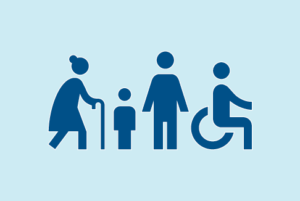On June 26, 2013, the US Supreme Court’s decision in United States v. Windsor struck down Section 3 of the federal law known as the Defense of Marriage Act (DOMA). Under DOMA and for purposes of federal law, the term “spouse” was limited to individuals of the opposite sex. The Court’s decision in United States v.Windsor means that the federal government must recognize, as spouses, individuals of the same-sex who are married in states which permit same sex marriages. In a companion case, the Supreme Court, on a procedural ground, upheld a district court opinion invalidating Proposition 8, the ban on same-sex marriage in California. As a result, same-sex marriages are now recognized in California.
These two cases have significant impacts on employee benefits and leave laws. Many important questions have been raised by Windsor that will not be answered until subsequent guidance is issued by federal regulators. On June 27, 2013, the Internal Revenue Service acknowledged the importance of the Court’s decision and announced that it “will be moving quickly to provide revised guidance in the near future.”
In the interim, hospitals should work with counsel to develop a short-term approach to demonstrate good faith compliance.

